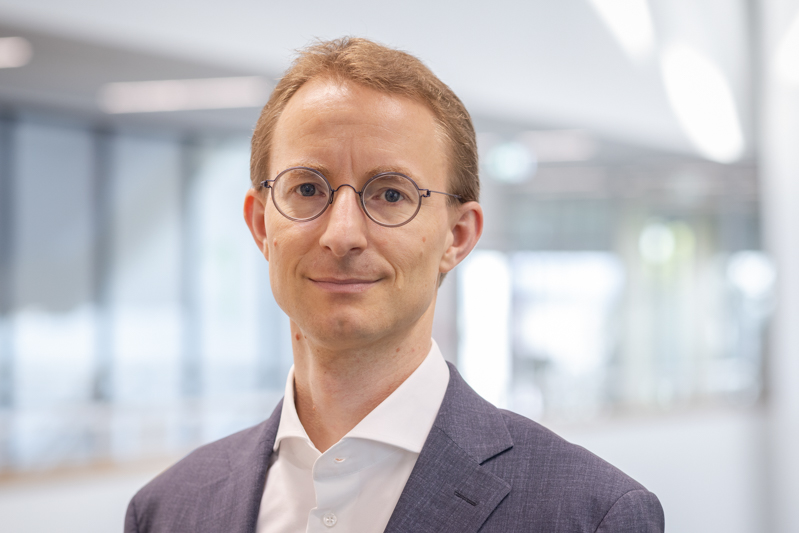New institute director
Professor Martin Braun to Head Fraunhofer IEE in Kassel
The Fraunhofer Institute for Energy Economics and Energy System Technology IEE in Kassel has a new leader: Prof. Dr. Martin Braun is taking over as the new director of the research institute on November 1, 2024. He is also a professor for sustainable electrical energy systems at the University of Kassel.

A secure, affordable, and efficient energy supply from renewable sources is the primary focus and mission of the Fraunhofer Institute for Energy Economics and Energy System Technology IEE. For 36 years now, it has been developing solutions at a national and international level to advance energy systems technology and drive the digital transformation of the energy sector, making the energy transition a tangible reality. Prof. Braun has significantly shaped the development of Fraunhofer IEE since 2005, when he began his scientific career.
Most recently, he built up a Fraunhofer IEE division with approximately 55 researchers and established the Grid Planning and Grid Operation business unit, which raises over 35 percent of its budget from the energy sector. Parallel to his career at Fraunhofer, Braun was appointed junior professor at the University of Stuttgart — only two years after completing his doctorate in 2010. In 2012, he accepted a full professorship in energy management and power system operation at the University of Kassel. In 2023, Braun was included in Stanford University’s prestigious World’s Top 2% Scientists List for his significant scientific contributions.
The energy transition as his lifelong mission
Professor Holger Hanselka, President of the Fraunhofer-Gesellschaft, congratulated: “Professor Braun is an outstanding scientist and committed expert from our ranks, now taking on this pivotal role. For years, he has successfully leveraged his expertise to bridge applied research and industrial application. His contributions to the energy transition and to climate protection are invaluable to both Fraunhofer and our broader economy and society.”
Prof. Ute Clement, President of the University of Kassel, also congratulated Prof. Braun and Fraunhofer, emphasizing: “Fraunhofer IEE has gained an outstanding researcher as its director, which will further strengthen our university's strong partnership with Fraunhofer IEE. Our university is recognized for its work in sustainable transformations, and Fraunhofer IEE is one of the leading research institutions in energy transition research. Together, we can shape the transition to a sustainable energy supply from Kassel.”
Prof. Braun highlighted the importance of his lifelong mission: “The energy transition is one of the greatest challenges of our time, and I am committed to making a meaningful, active contribution through my work at Fraunhofer IEE.” He shared his vision for the future of the institute: “With over 400 dedicated employees, we are pioneering innovative solutions to design and automate future energy systems.” To achieve these ambitious goals, the new institute director seeks close collaboration with research and industry partners.
He emphasized the importance of integrating technical and economic perspectives: “To bridge these areas, I pursued studies in both electrical engineering and information technology as well as technically oriented business administration at the University of Stuttgart.” After completing his doctorate on the provision of ancillary services by distributed generators, his research focus shifted towards the design and operation of power systems based on renewable energies.
Deputy institute director Dr. Reinhard Mackensen has headed Fraunhofer IEE on an interim basis during the appointment phase since February 2022. The Fraunhofer-Gesellschaft and Fraunhofer IEE would like to thank Dr. Mackensen for his dedication in not only continuing operations but also in developing the institute’s organizational structure in many respects. Mackensen will continue to play an integral role in the management of the institute.
Last modified: